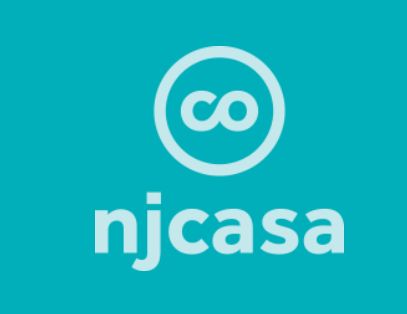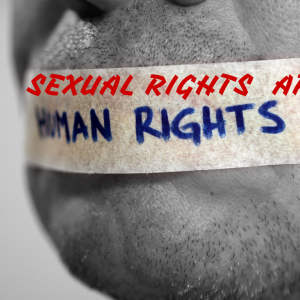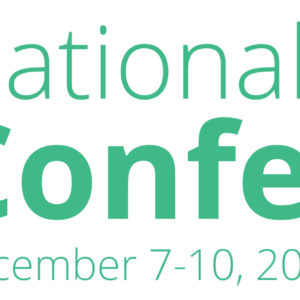This is one in a series of posts meant to prepare you for this year’s National Sex Ed Conference. This week, we spotlight Liz Zadnik and Sarah Bear, B.A., colleagues at the New Jersey Coalition Against Sexual Assault (NJCASA), who will be speaking about sexual violence prevention on Thursday, December 7, 3 p.m. – 4 p.m.
1. Give me a bit of background on yourselves first. Can you give me a quick rundown of what keeps you busiest these days?
Liz: I have been at the state coalition level for about eight years now. Before then, I was in sexual health and reproductive justice and intimate partner violence prevention. I LOVE prevention, and getting to work with preventionists at local rape crisis centers is the best part of my day. These folks implement programming with communities and engage in community organizing throughout the state. I spend a lot of my time researching helpful resources for them, designing skill-building trainings, and keeping up-to-date on promising practices in the field. I also get to work with institutions of higher learning. They provide some awesome insights on how prevention can look in a different community context.
 Sarah: Prior to joining NJCASA in September 2015, I had the opportunity to work in multiple capacities at one of New Jersey’s county-based rape crisis centers (or what we call sexual violence programs). In my current role as Training & Outreach Coordinator, I manage NJCASA’s Training Institute, which provides both web-based and in-person trainings to folks at our sexual violence programs, and to allied professionals, in order to increase their capacity to work with survivors.
Sarah: Prior to joining NJCASA in September 2015, I had the opportunity to work in multiple capacities at one of New Jersey’s county-based rape crisis centers (or what we call sexual violence programs). In my current role as Training & Outreach Coordinator, I manage NJCASA’s Training Institute, which provides both web-based and in-person trainings to folks at our sexual violence programs, and to allied professionals, in order to increase their capacity to work with survivors.
I also help manage our recently-launched Online Campus, where program members and advocates can access webinars and other educational materials in a self-paced course. Additionally, I coordinate NJCASA’s Social Media Ambassadors, who are a group of passionate online activists who amplify NJCASA’s mission, start productive conversations about sexual violence, and promote safer online spaces. As someone who is very passionate about the ways social media can enhance existing activist efforts, this program is an exciting endeavor for me!
2. What are your main areas of interest within the field of sexuality? What would you consider your special niches?
Liz: I think promoting pleasure and autonomy—especially for survivors—is a big interest of mine. Trauma can interfere with the mind-body connection, and I think prevention efforts can help build or strengthen those connections for folks.
Sarah: Conversations about what consent looks like can help promote positive sexual experiences for everyone, and I think these conversations have a huge overlap with sexuality education. I have a strong interest in how consent education can help limit boundary violations, whether intentional or unintentional.
3. What has most informed your trajectory within this field?
Sarah: This is a tough question because I feel like everything I’ve done, no matter how small, has led me to where I am today. There wasn’t one big project or event that propelled me forward, but rather a combination of opportunities and dedication. If I had to think of one example, I’d probably say the biggest thing was when I let go of my “five-year plan.” I found that having very specific goals or desired outcomes only created tunnel vision and limited my growth. Letting go of these rigid boundaries I had placed on myself opened up a whole world of opportunity and has led me to where I am now.
4. What obstacles have you faced over the years, and how did you overcome them?
Liz: I think the biggest obstacle is always going to be the status quo: we’re all trained to feel and think and perceive in certain ways. Many times, those patterns render others invisible or shut communication down. It can get really discouraging hearing victim-blaming statements day after day. That’s why I think self-care and acknowledging our limitations is really important.
Sarah: I’m going to mirror Liz on this response. When you work with “woke” people for 40 hours a week, you can sometimes forget that not everyone thinks the way we do. It can be jarring to hear someone make a comment that doesn’t promote a supportive or safe environment for survivors. When I first entered this field, I had a difficult time leaving work at work because rape culture doesn’t just stop when you’re off the clock. For me, learning when to step away and engaging in self-care that doesn’t have anything to do with the topic of this field has been a huge help for me, especially when it comes to preventing burnout.
5. What role do you believe educators have to play in sexual violence prevention?
Liz: Their perspective! I love working with sexual health educators because they remind me that sex should be about pleasure and is a component of our humanity. Sexuality isn’t / shouldn’t be all about exploitation and coercion.
Sarah: I have to agree with Liz on this one. Respecting boundaries + comprehensive sexuality education = enjoyable sexual experiences for folks, which is a common goal for both of our movements!
6. When did you realize there was a need for a presentation on this topic?
Liz: Sarah and I have talked a lot about consent and prevention in our work together, but our perspective is only half of what’s possible. We both believe partnerships are crucial and dialogue is key to innovation. We hadn’t participated in those conversations in the past…so we thought we would create the opportunity and see how folks felt about it!
Sarah: One of the aspects of sexuality education that I love is the focus on pleasure and enjoyment. Making sure boundaries are respected and people feel safe is a huge part of enjoying the experience. Ultimately, sexual violence prevention and sexuality education share a lot of common goals, so we thought it would be a great start to inform each other’s work.
7. What is the main takeaway you hope conference attendees will get from your presentation?
Sarah: That prevention is possible!



